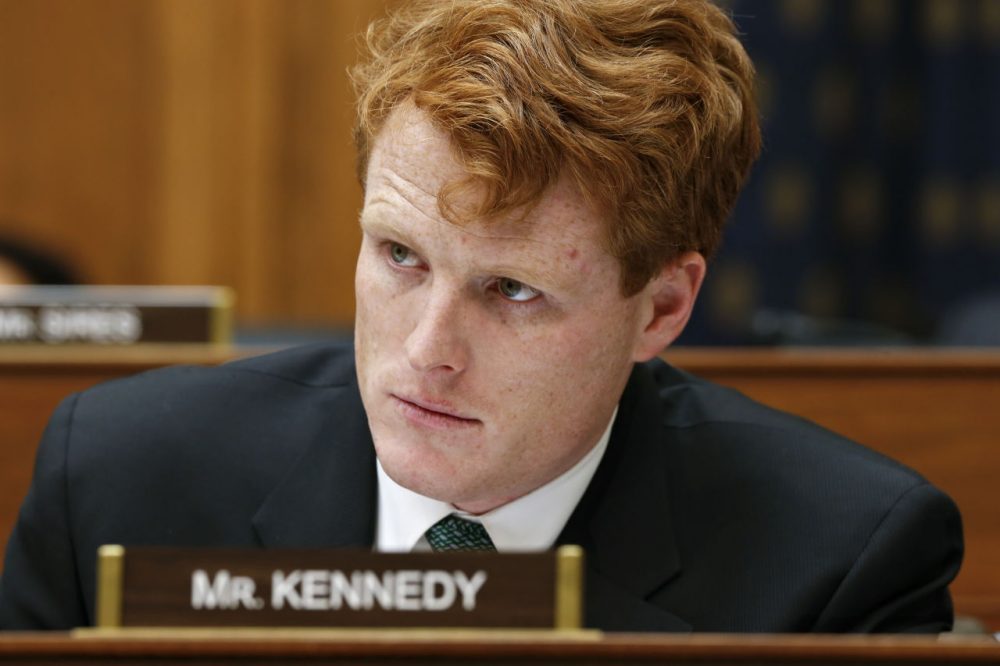If you thought the Clintons were a dynasty, think again. They pale in comparison to the family that has provided a president, five other members of Congress and two US ambassadors, among many other things. Their most famous son is considered one of the most high-profile presidents of all time, whose life and death are common knowledge not just in the USA but throughout the world, and the very invocation of whose name is shot through with meaning and poignancy (as Dan Quayle learned the hard way in the video below).
Now, the first of a new generation of Kennedys, the grandson of Bobby and great-nephew of John F., has entered the political scene. Joe Kennedy III was chosen by Democratic leaders Nancy Pelosi and Chuck Schumer to give the party’s official response to Trump’s State of the Union address. In his speech, Kennedy put forward a strong message criticising the Republicans’ rhetoric of making ‘trade-offs’ between different communities, doing harm to some in order to help others, essentially pitting Americans against one another. His vision of the Democratic alternative to this state of affairs, of “choosing both” instead of favouring one side over another will have gone down well among the party’s faithful.
Under normal circumstances, the young Kennedy would certainly be destined for success. He is charismatic, put in a strong performance for his first major showing at a national level, and has the most household of names to remind people of his political pedigree. However, the politics of the last few years has been marked by a sudden move away from a political elite, one which is epitomised by powerful families whose influence spans decades. Hillary Clinton and her shock defeat in 2016 are one example of this, while another is the Greek tragedy of Jeb Bush’s 2016 campaign, memorable only for its utter hopelessness. In these anti-elitist times, a family name like Kennedy’s can prove to be a millstone around the neck for a young political career, loaded as it is with connotations of privilege and advantage. Much onus will be on Kennedy to prove he is not in any kind of elitist bubble, and can relate to the interests and concerns of ordinary voters.
 Joe Kennedy III, whose surname still precedes him in American politics (Source: AP)
Joe Kennedy III, whose surname still precedes him in American politics (Source: AP)
Despite all this, don’t bet against Kennedy having a long and successful political career – your average dynast, he is not. He currently chairs the Congressional Transgender Equality Taskforce, and invited a transgender veteran as his guest to his State of the Union response in order to protest Trump’s ban on transgender soldiers enlisting in the US military. He has also gained attention for his various international works, such as helping to organise tour guides into effective unions in order to push for higher wages, and serving as an ‘Anti-Poverty Consultant’ to the president of Timor-Leste. If he can continue to show such apparent passion for individual causes and concerns, he may well win over many voters as he rises through the political system.
“Bullies may land a punch. They might leave a mark. But they have never, not once, in the history of our United States, managed to match the strength and spirit of a people united in defense of their future.” #SOTUResponse
— Rep. Joe Kennedy III (@RepJoeKennedy) January 31, 2018
All this assumes, though, that he wants to rise at all. Since his address, he has told the ‘Off-Message’ podcast that he has no intention of running for the White House any time soon, joking that he would only get directly involved in the 2020 race as Oprah Winfrey’s Vice-Presidential candidate. Instead, perhaps sensibly, he suggested that the leading figures from all factions of his party should run in a “big, messy primary” so that the party can start to work out its ideological standpoint again. Yet even if he does not take centre stage straight away, you get the feeling Joe Kennedy III will be around, waiting to choose his moment.


